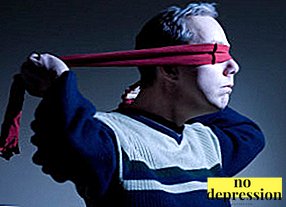In this article I will talk about how to develop intelligence. Here we will talk about the possibilities and potential of our mind.
But for starters, I would like to dispel a number of misconceptions, common myths about intelligence, before going directly to practical recommendations.

It is believed that intellectual abilities, a type of thinking (a mathematical-analytical mindset, a humanitarian warehouse) are given from nature and further are determined by upbringing and development in childhood, which sets the basic foundation for our type of thinking and level of intelligence development in adulthood. This is partly true, but only partly.
Myths and Misconceptions about Intelligence
This leads to the erroneous conviction that once the formation of the mind and the abilities of the brain has already taken place, then the intellect is not at all what you need to look after, what needs to be trained and developed. This is a special case of what I am talking about in the article about whether you can change yourself; in which I exposed the well-known myth that you cannot change yourself. Only I spoke about character and abilities in general, but this is also true of the capabilities of the brain.
Yes, I agree that you need a very happy set of circumstances to become Einstein: on the one hand, conditions at the genome level that favor the formation of the mind, on the other hand, are correct from the point of view of genius personality formation, upbringing and development of abilities in childhood. But I categorically do not share the conviction that a person is not able to develop intelligence, since his abilities did not receive the necessary impetus at a young age or were not given from birth.
Each of us can achieve an acceptable level of intellectual qualities, you just need to make an effort and not give up. It may seem that I am repeating myself somewhere, but in fact I’m just going back to the principle that underlies my system of self-development: within each person there is a potential and you just need to show willpower and awareness to reveal it.
Now let's talk about the second fallacy. If the first myth refers to people whose mental abilities have not received the necessary development, the following applies to those who have managed to contribute well to enhancing certain qualities of reason, people who are intelligent and / or gifted, and who consider themselves as such. For them in the very fact of awareness of their own outstanding abilities rooted some danger.
It may seem that since they have certain qualities of mind (mathematical ability to understand people, formulate complex concepts, good memory and erudition), the other parameters of thinking do not need development, since these people, by their conviction, have already reached their peak their mental formation.
For example, someone thinks that being smart in one area means being smart in general. Some individuals have great knowledge in the field of the humanities, fluently know how to grasp the main idea of some tricky concept with thought, but they have difficulty when you have to count small things in a store, while others quickly solve mathematical problems but are lost when analyzing life situations or when evaluating people. The mind must be developed harmoniously! Unbalanced development of intelligence, like uneven training of muscles. This is the same as signing up for a gym and working on the development of only the muscles of the arms and eventually turn into some sort of orangutan! A good sports figure requires a balanced study of each of the muscle groups, and to achieve this, you need to know what muscle groups are and how you need to train them.
Using this analogy, I will talk about intelligence: I will describe what functional parts it consists of and how you can develop each of them.
Secrets of the development of intelligence
I was once asked for advice: "Nikolai, advise me a way to develop intellectual abilities. From childhood I have some problems with thinking, read a book (I don’t remember exactly the author and remember the name) I. Ivanova - Become a genius in a few days! - did not help".
And no wonder, such literature uses the desire of people to search for easy and fast ways to bypass proven, but difficult ones. Just as there is no simulator or pill that will make you a bodybuilder and replace an entire gym (although it was during my childhood advertising such miracle simulators), there is also no universal method for improving intelligence quickly and easily.
The best way to develop the brain is to regularly load it with a complex, and not just some exercise (the same is true for the muscles). This idea does not shine with originality, moreover, it is banal and obvious: there is no better way to improve your health and physical form than quitting bad habits and playing sports. In the same way, the best impetus for the development of the mind is to use it in various complex tasks. Many understand this perfectly well, but for some reason, it comes to practice that they safely forget about it!
This is due to the fact that laziness and unwillingness to make efforts overshadow the arguments of common sense and consciousness begins to look for easy ways to achieve their goals. About this feature of the person are well aware of various marketers who massively replicate miracle pills or magic trainers and means for losing weight. You must understand that without effort nothing is given and that they are not only a means, a tool (you must make an effort to achieve the goal), but also an end in itself!
By exerting effort, you temper the will and strengthen the character. Doing regular exercises, you form a discipline. It turns out that forcing oneself daily to exercise at all in physical / mental development is useful not only for physical / mental improvement. It also makes you more strong-willed and disciplined and forms a good habit of working on yourself.
Okay ... let it be the subject of a separate article, which I will publish here.
Types of intelligence and their properties
Let us return to the description of the abilities of the intellect, they are the following:
- Analytical: the ability to conduct a comprehensive analysis of information, divide it into semantic and logical blocks, determine the relationship, compare and compare among themselves the various pieces of information
- Logical: logical core of reason, includes the ability to reason, think and analyze without violating the principles of formal logic, the ability to make correct, logical and consistent conclusions
- Deductive: qualities that help to get the general idea out of a large body of information and correctly formulate it, the ability to deduce and generalize, the ability to group particulars into something common, to find patterns
- Critical: the ability to critically evaluate information, the ability to sift out the wrong conclusions, dismiss false ideas, quality, allowing to resist influence and suggestion
- Prognostic: the ability to plan ahead, to form in the mind a model of future events and at the same time to keep in mind the options for solving various alternatives
- Abilities to abstract thinking: allow the mind to penetrate into complex abstract ideas (both mathematical, logical and philosophical) and to keep complex concepts and systems in thought
- Abilities to figurative thinking: contribute to the ability to compare things different in meaning in the mind, summing them up under a common conditional denominator, ability to formulate comparisons, metaphors that help simplify the understanding of complex ideas, translating them to a more accessible level of understanding, good perception of artistic images
- The ability to concentrate, keep attention: probably more related to the manifestation of the will than to the work of the mind, but then I consider it necessary to mention, as it largely determines the effective work of the intellect

Also our reason has some properties:
- The logic of architecture: the degree of orderliness of thinking and coordinated work of different abilities of the intellect (for example, someone has an order in his head, we can say about him that he thinks soberly and rationally, and someone’s thinking is vice versa chaotic, spontaneous and incoherent)
- Depth and breadth of mind: what perhaps in the general sense determines how smart people are. Sets the possibility of comprehensive coverage of the object of thinking and the depth of immersion in mental tasks
- Speed of operations: well, everything is clear, how quickly we think and how quickly we solve problems
- Autonomy: the degree of independence of the mind, from the work of feelings, external influence, the ability to make sober decisions, both in a calm state, and in conditions of stress, anxiety, fear and psychological pressure. Determined by the measure of awareness.
Our memory supports us in all this. I will not dwell on it, so I think it is clear what function it carries, but I consider it necessary to select one of the memory types important for the work of reason
- Operational memory: the ability to hold in the mind several intermediate operations simultaneously and find their solution. (Try multiplying a few two-digit numbers in your head: you’ll have to keep in mind the intermediate result of multiplication (what teachers at school called "in mind") to get the final result)
That's actually the components of our mind, which I singled out, the division is to some extent conditional, somewhere something can intersect and duplicate another, but there's nothing you can do, science is not exact, and we don’t aspire to absolute accuracy. Here this accuracy is not realizable in principle, and this is not only due to the limited knowledge of man in the field of consciousness, but also the very structure of thinking and connections in the brain: everything is interconnected and can duplicate the other in functional aspects (this is invented by evolution for reliability, one part fails - there is a spare).
I singled out these blocks so that later it would be more convenient to say which exercise is responsible for the development of which function.
Tricks and exercises for the intellect
Now finally talk about how you can increase intelligence. First, please note that the exercises should not be too tedious and monotonous, choose what suits you best and brings at least some pleasure. You must try not to overdo it, to make it so that it doesn’t take so long to make you hard to bear. But the main thing is the regularity of the load on the brain, it is necessary that the exercises come into your habit.
In physical education there are basic exercises (which involve several muscle groups at once - pushups from the floor, push-ups from the bars, squats), and there are isolated (training one separate muscle group), and there are things in the development of intelligence that help improve several qualities of our mind .
Next, I will tell you exactly what things help to develop your mind. In this article I will touch them briefly, but I will provide links to my articles, where each of these points is revealed in more detail. For those puntkov for which there will be no links, then I will definitely write an article, so subscribe by mail (the icon at the top right) and wait for updates.
So what improves our mental qualities?
Logic and intellectual games: (separate article Brain-developing games. The benefits of chess, the benefits of poker) These are chess, backgammon, poker, preference, logic puzzles, educational computer games of various genres, etc.
Intellectual games perfectly train the mind, concentration and memory. In addition, they bring the joy of rivalry (if the game is played against an opponent) and the pleasure of improving skills. Board game - the most ancient kind of mental competition in which the best minds proved.
I can recommend a very good site with a lot of exciting exercises and games for the development of intelligence - Wikium.
Mathematics, exact sciences: (separate article Why Math is Needed) Exact sciences develop a whole range of mental qualities. These are logical and abstract thinking, critical, analytical, deductive, predictive abilities, as well as memory and quick thinking. It can be said an exercise on many muscle groups.
Exact sciences not only improve your intellect, but also organize, structure thinking, restore order in the head, in thoughts. Mathematics is extremely important in the context of the mental formation of an individual, both a child and an adult.
Reading fiction: It seems to me that the influence of books on the development of the mind is somewhat exaggerated. I'm talking about the widespread conviction that in order to become smart you have to read a lot. This statement is true, but incomplete. Yes, undoubtedly, good books broaden your horizons, promote emotional formation, form good taste and develop certain qualities of your mind.
Books must be read by both adults and children. But literature enhances only certain mental properties. In order to have a balanced developed mind, books alone are not enough (as, of course, just one mathematics or logic games) need to be dealt with all together: the exact sciences and literature, etc. Otherwise, some of your abilities will develop, and some will remain in their infancy.
Learning: The unique ability of our brain is the ability to learn new skills, obtain new information and apply it in our everyday experience. Teaching is the light! Learning contributes not only to the fact that we comprehend knowledge, which, as it may be useful to us, may not be needed at all. Value not only in knowledge itself, but in learning as such!
While studying, we learn to work with information, process it, and then, find a place for it in the general structure of our knowledge. Even if this knowledge is never useful in life, learning it, we strain our mind and memory, we learn concentration. Also, learning contributes to the broadening of horizons, and the more we learn, the easier it is for us to learn new knowledge! In this process we learn to learn!
Learning other languages: also develops certain aspects of our thinking. Somewhere I read that many good mathematicians, "techies" difficult, in the beginning, given the language. Conversely, those who know languages well, as a rule, are not at odds with the exact sciences. This is true, but I do not want you to draw the wrong conclusions! This does not at all indicate the existence of the notorious “techies - humanities” dichotomy, that the former are created for one and the latter for the other.
The conclusion in the article in which I read about it was the following. Everyone, with due effort, is able to master anything! The fact of difficulty in learning languages, from the side of techies, says that the mental qualities that develop in the exact sciences are not related to those properties of the intellect, which are improved by the knowledge of languages! In short, if you wrung out from the floor for a long time, then it will be easier for you to pull the barbell from the chest, since the same muscles are involved there and there.
But if you want to squat well, then your experience of push-ups will not help you at all. And if you want to have both strong legs and an embossed chest, then please do this and that. Also here. Mathematics does little to develop the parts of the brain that are needed to learn languages. TZ here are involved completely different qualities, and for the harmonious mental development, it is necessary to develop both. Remember, one does not exclude the other, even if something will be given to you will be much more difficult than the other.
And the last ...
Learning new: reading scientific and popular science literature, watching educational films, encyclopedias, useful, informative sites, all this helps to enrich your mind and erudition. Do not neglect this! Strive to keep the curiosity like a child! Always learn new things, comprehend this world and person. Remember, knowledge is power! A lot of amazing things happen in the world. The whole universe is one big miracle! Strive to learn as much as possible about him!



